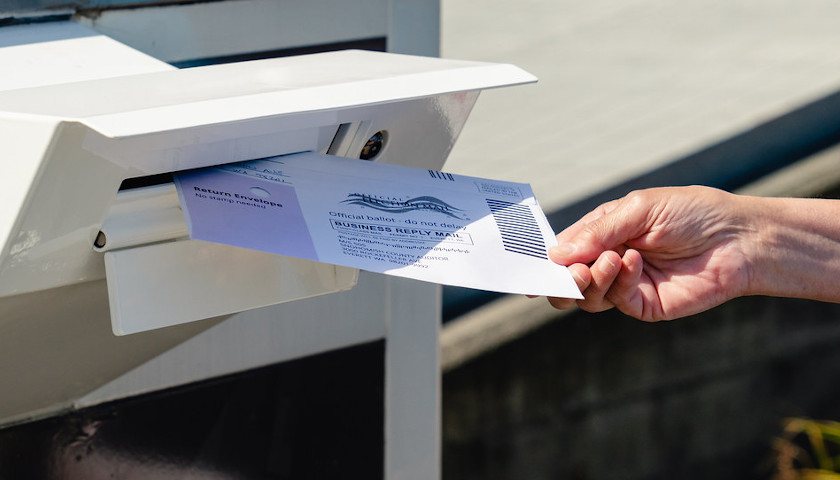Although Pennsylvania’s Commonwealth Court on Friday invalidated the law that has allowed no-excuse mail-in voting since 2020, the state’s appeal of the ruling means the decision is not yet in effect.
State officials, represented by Democratic Attorney General Josh Shapiro, will likely face a much friendlier forum in the state Supreme Court, which is controlled by Democrats in contrast to the Republican-majority Commonwealth Court. Democrats denounced the latter court’s ruling and pointed out that Republican legislators overwhelmingly voted for Act 77, which allowed Pennsylvanian’s who were not sick, injured or out of town to vote via absentee ballot.
“Such a transparent and deliberate effort to sow doubt into the integrity of our voting system must not be tolerated,” state Sen. Wayne Fontana (D-Pittsburgh) said in a statement.
“‘Elected officials should be making it easier for citizens to exercise their right to vote, not harder. I look forward to the imminent appeal of this ruling.’”
State Sen. Sharif Street (D-Philadelphia) also blasted the court for its decision and continued to justify a greater reliance on absentee voting on the prevalence of COVID-19.
“Today’s attempt by the Commonwealth Court to eliminate options for voting during a pandemic not only gets the law wrong but is irresponsible and puts the lives of Pennsylvanians at risk,” Street said. “The provisions of Act 77 which included ballot drop boxes, early voting, and no excuse vote-by-mail, allowed for millions of additional Pennsylvanians to vote safely during an unprecedented health crisis. Since the adoption of Act 77 we have seen vast increases in voter participation through the vote-by-mail process. To eliminate it is to disenfranchise people.”
Writing the opinion of the Commonwealth Court, Judge Mary Hannah Leavitt observed that 1.38 million Pennsylvanians have requested the state to list them as permanent mail-in voters who want to receive an absentee ballot for elections going forward. She opined that the electorate would likely approve amending the state Constitution allowing no-excuse absentee voting if such a measure appeared on the ballot. But she concluded that Article VII Section 1 clearly requires in-person voting for most people and must be amended in order for expanded mail-in voting to be permitted.
The ruling has been celebrated by Republicans including former President Donald Trump.
“All American Patriots are thanking the Commonwealth Court of Pennsylvania for having the courage to do the right thing!” the former president said in a statement.
Until recently, as Democrats have broadly embraced absentee voting as standard, a bipartisan consensus held that absentee voting was more vulnerable to fraud than ballot-box voting. This consensus was underscored by a 2005 report of the Commission on Federal Election Reform chaired by Democratic former President Jimmy Carter and Republican former Secretary of State James A. Baker III.
“Absentee balloting is vulnerable to abuse in several ways,” the report read. “Blank ballots mailed to the wrong address or to large residential buildings might get intercepted. Citizens who vote at home, at nursing homes, at the workplace, or in church are more susceptible to pressure, overt and subtle, or to intimidation. Vote buying schemes are far more difficult to detect when citizens vote by mail.”
Despite longstanding concerns surrounding mail-in voting, Act 77 passed with the support of nearly every Republican state representative and nearly every Republican state senator. It was ultimately a compromise bill that included not only the mail-in provision but the elimination of a straight-party voting option on Pennsylvania ballots. The measure was signed by Democratic Gov. Tom Wolf in October 2019.
– – –
Bradley Vasoli is managing editor of The Pennsylvania Daily Star. Follow Brad on Twitter at @BVasoli. Email tips to [email protected].
Photo “Mail in Ballots” by Cindy Shebley CC BY 2.0.




